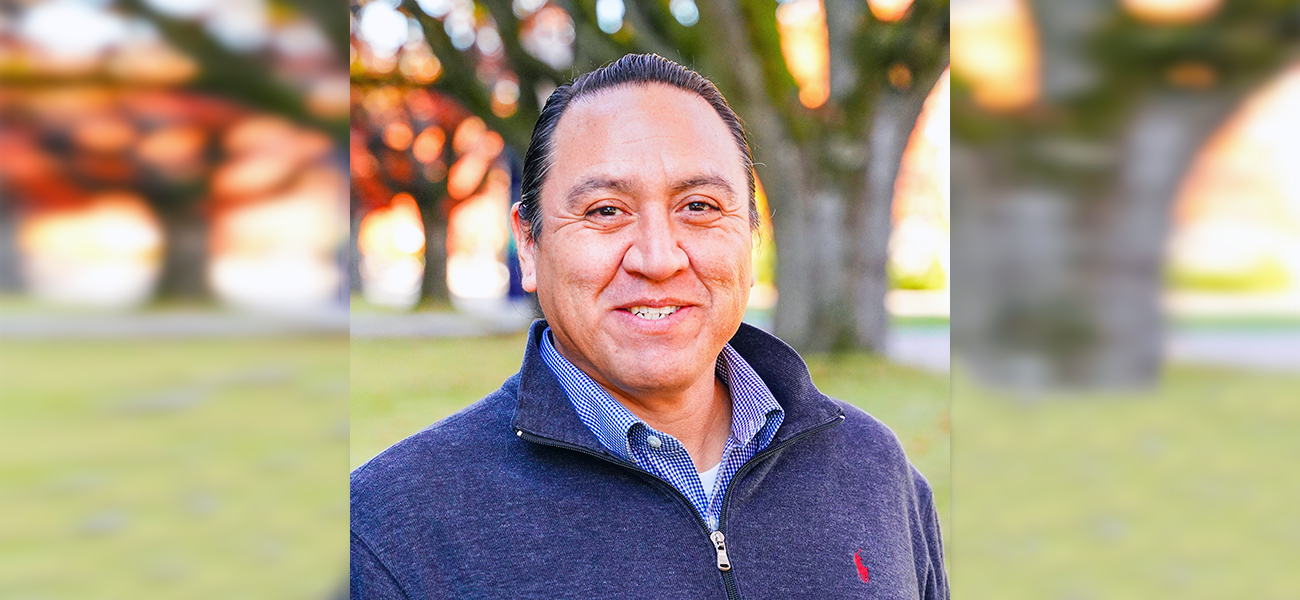
A transformative shift is underway in the field of earth sciences, as Indigenous knowledge systems and research methodologies gain recognition for their vital role in understanding the environment we live in. Shandin Pete, an Indigenous scholar and an assistant professor in the UBC Department of Earth, Ocean and Atmospheric Sciences, is at the forefront of this movement, and through his expertise in hydrogeology, Indigenous research methodologies, and geoscientific ethnography, is shedding light on the profound significance of Indigenous frameworks in shaping our understanding of earth science.
Pete's work bridges traditional Indigenous wisdom with scientific practices, while acknowledging the distinct strengths of both realms, and their potential for mutual enrichment.
He explains, “By integrating Indigenous knowledge and scientific knowledge, innovative approaches can be cultivated to address the intricate environmental challenges we face. This fusion allows for a more inclusive and holistic comprehension of Earth systems, forming the bedrock for sustainable solutions.”
At the heart of Pete's approach lies the vital concept of knowledge mobilization — the recognition, respect and valuation of Indigenous knowledge systems. He emphasizes the wealth and depth of Indigenous frameworks that have been refined and passed down through generations. Indigenous knowledge is interwoven within the lands, languages, and cultures, offering a holistic perspective that complements scientific methods and contributes to a comprehensive understanding of our environment. He underscores the importance of cultivating reciprocal and respectful relationships in this spirit, stating, "Meaningful engagement with Indigenous communities requires active listening, trust-building, and ensuring their voices are heard and respected throughout the research process."
Recognizing the need to transcend the limitations of a Western-centric approach, Pete acknowledges the challenge of mobilizing Indigenous knowledge within a system that focuses solely on empirical data and quantitative measurements, and how this often disregards the holistic and interconnected ways of knowing that Indigenous communities engage to generate and transmit knowledge. Indigenous research methodologies — rooted in cultural protocols, storytelling and intergenerational knowledge sharing — hold valuable insights that must be embraced and respected to ensure accuracy and integrity.
Further, Pete underscores the power of curiosity in propelling knowledge mobilization efforts. According to Pete, knowledge mobilization necessitates an ongoing dialogue and a commitment to mutual learning.
"Curiosity prompts us to listen, understand, and appreciate the diverse ways of knowing present within Indigenous communities. Approaching knowledge mobilization with an open mind and a sense of curiosity enables us to establish meaningful partnerships that honour Indigenous knowledge systems” says Pete.
He adds “Indigenous knowledge is not just for Indigenous peoples; it holds value and relevance for the entire world. By embracing and mobilizing this knowledge, we can forge a path towards a more harmonious relationship with our planet.”
Kx takeaways:
- Knowledge mobilization requires a commitment to mutual learning, grounded in humility and genuine curiosity, fostering meaningful partnerships that are built on respect and reciprocity.
- Curiosity acts as a powerful catalyst for knowledge mobilization, driving exploration and understanding diverse ways of knowing.
- “Non-Indigenous scientists need to develop a multicultural fluency, to be able to see past the very superficial part of culture, to see the deep constructs and the purposes that people are trying to achieve with the things they want to know about the world.”